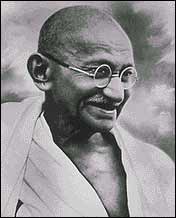

 |  |
 Towards the end of 19th century, German synthetic dyes forced indigo out of the market and the European planters of Champaran, in order to remove the obligation of cultivating indigo on the cultivators tried to secure enhancements in rents and other illegal dues as a price for the release. Resistance had surfaced in 1908 but momentum came when Rajkumar Shukla (local man) decided to follow Gandhiji all over the country to persuade him to come to Champaran and investigate the problem. Towards the end of 19th century, German synthetic dyes forced indigo out of the market and the European planters of Champaran, in order to remove the obligation of cultivating indigo on the cultivators tried to secure enhancements in rents and other illegal dues as a price for the release. Resistance had surfaced in 1908 but momentum came when Rajkumar Shukla (local man) decided to follow Gandhiji all over the country to persuade him to come to Champaran and investigate the problem. Gandhiji on reaching Champaran was ordered by the Commissioner to immediately leave the district. Gandhiji declined. The Government of India not wiling to make an issue of it ordered the local Government to retreat. A victorious Gandhiji embarked on his investigation. He and his colleagues, including Brij Kishore, Rajendra Prasad, Mahadeo Desai and Narhari Parikh and J.B. Kriplani toured the villages and from the dawn to dusk recorded the statements of the peasants. Meanwhile, the government appointed a commission of enquiry and nominated Gandhiji as one of its members. Soon Gandhiji impressed upon the commission about the peasants plight. As a compromise with the planters, he agreed that they refund only 25% of the amount of the amount they had taken illegally from the peasants. next page >> |
Copyright ©2000 indiansaga.info. All rights reserved.
By using this service, you accept that you won't copy or use the data given in this website for any commercial purpose.
The material on indiansaga.info is for informational & educational purpose only.
This site is best viewed at 800 X 600 picture resolution.